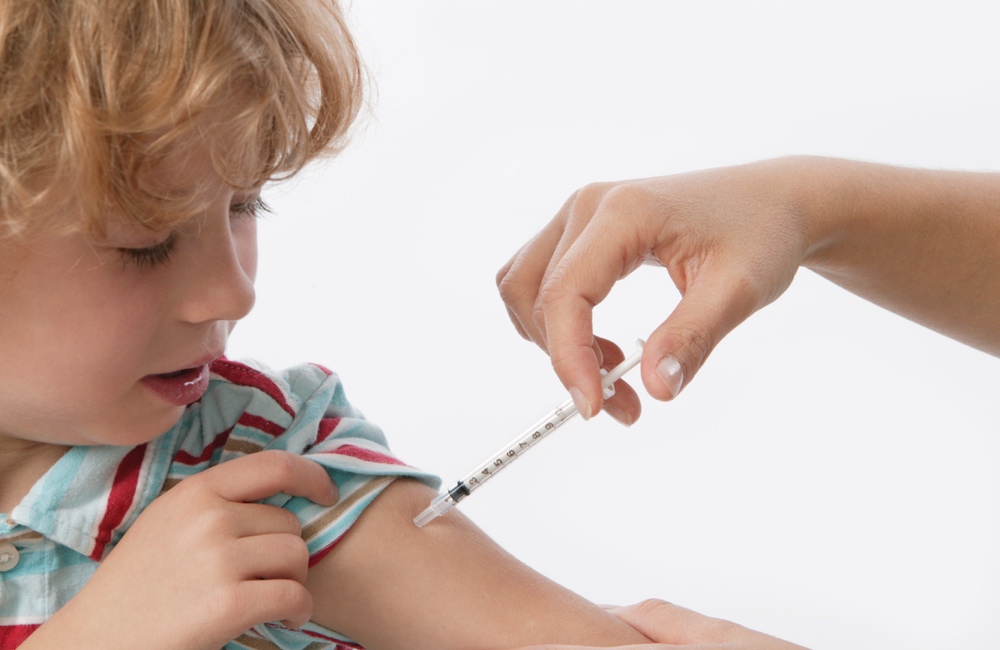We are reminded of the risk of life-altering diseases when they become epidemics, such as the ebola and zika viruses have, and we eagerly hope for vaccines to be developed to safeguard us against them.
However, once diseases are under control, and the public is no longer seeing the serious results of outbreaks, we may become less committed to the vaccines that prevent them.
This is one reason some parents fail to immunize their children. Unfortunately, they are unknowingly contributing to a personal and public health problem, namely the spread of preventable diseases, as a recent study published in JAMA, The Journal of the American Medical Association, makes clear.In the early 1980s, the number of pertussis cases was at an all-time low of 2900 cases. By 2015, the case number had risen to 18,166.
Controlling these highly contagious diseases with vaccines has led to significant decreases in deaths, individual health problems and health care costs.
There are a number of reasons why parents may decide not to vaccinate their children. Some have concerns about the safety and advisability of vaccines and some have religious, spiritual or personal beliefs that lead them to refuse immunizations.
At least some of these concerns are based on inaccurate information and lead to unsafe decision-making.
Over the past 20 years, more and more children have been receiving non-medical exemptions from vaccines. The new JAMA study makes clear that recent outbreaks of certain diseases that were previously well-controlled are the direct result of the failure to vaccinate children.
The researchers focused on measles and pertussis (whooping cough).
There are some good reasons for avoiding or delaying this vaccine. These include: a current illness, a life-threatening allergic reaction to a previous dose of the vaccine or its components, such as the antibiotic neomycin; having HIV/AIDS or another disease or condition that affects the immune system, such as taking high doses of steroids, having cancer or undergoing cancer treatment.When non-vaccinated children develop measles or pertussis, they increase the likelihood of exposure of older people whose immunity is fading, and the risks to everyone are increased.
There are also certain autoimmune conditions in family members that should be discussed with your family doctor prior to administering a vaccine.
Children are immunized with pertussis in a combination product that includes diphtheria, tetanus and acellular pertussis. Children should get 5 doses of DTaP, one dose at each of the following ages: 2, 4, 6, and 15 through 18 months and 4 through 6 years.
Medical contraindications to the pertussis vaccine include a life-threatening allergic reaction after a previous dose of the vaccine or severe allergy to any part of the vaccine and anyone who has had a coma or repeated seizures within seven days of a previous dose (unless another cause was identified.)
Emory University and Johns Hopkins Bloomberg School of Public Health researchers looked to see if refusals of vaccines had affected the number of cases of measles and pertussis since 2000.
Parents' failure to immunize played a major role in outbreaks. The researchers reviewed 18 published studies that included reports of more than 1400 cases of measles. Fifty-seven percent of these people had no history of measles vaccination despite having no medical reasons for avoiding the vaccine. Seventy-one percent of the people who came down with measles had religious or philosophical exemptions.
The same team reviewed 32 pertussis outbreaks, a total of 10,609 cases. The five largest statewide epidemics were in places with substantial proportions of unvaccinated individuals, though there were also several outbreaks in states with highly vaccinated populations.When there are non-vaccinated children who may have measles or pertussis, they increase the likelihood of exposure of older people with waning immunity.
It may be that waning immunity — the gradual wearing off of the protective effect of the vaccine — may contribute to the rise in cases of disease in vaccinated individuals, the researchers believe.
When non-vaccinated children develop measles or pertussis, they increase the likelihood of exposure of older people whose immunity is fading, and the risks to everyone are increased. Waning immunity is more commonly seen when the vaccines are inactivated vaccines, such as pertussis, than when they are live, attenuated vaccine, such as measles. The live attenuated vaccines tend to produce a stronger immune response.
An editorial, by Matthew M. Davis, MD, of the Child Health Evaluation and Research Unit, Department of Pediatrics and Communicable Diseases at the University of Michigan, accompanying the study offers strategies to improve immunity.
First, states should have stricter approaches to requests for exemptions from vaccines. Health care providers and parents should have a more in-depth dialogue on the value of vaccinations in which parents' concerns can be addressed directly.
Second, the recommended intervals between vaccine doses could be adjusted so that a person's immunity won’t wane between doses, leaving them vulnerable to infection. The editorial also calls for the development of new vaccines that produce stronger and more long-lasting immunity than currently available products.
Third, vaccination policies should also target the adult population. When adults are not immunized properly and do not receive appropriate boosters, they become a source of infection for unvaccinated young children in whom disease is often more serious. The study and editorial conclude that to decrease the incidence of vaccine-preventable disease in children and adults we need more research in these areas to inform public health policies.
Parents should discuss their concerns about vaccines with their children's health care providers. They should also review their own immunization status with their own providers.





